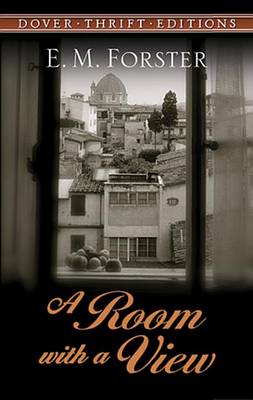It was the old, old battle of the room with the view.
Wow. Re-read in one sitting. I was only going to read the Florence bits, but then I just didn’t stop. This is why I’m a fan of coming back to books at different ages with different eyes and different contexts, because it makes them different books. I don’t think you can even know a book if you only read it once.
This time: I completely love Lucy. I don’t just feel patience with her, but kinship. It’s not even her book; she’s just the girl within it, growing up in a country in the throes of growing up. Looking at it through Renaissance-colored glasses (and of course Enlightenment-colored glasses) changes everything. I remembered some violets and the Baedeker; I missed the whole tension and tumult of a world that hasn’t found its way into new roles yet, but is on its way there.
Of course it’s Italy that sparks the rebirth. Of course the last chapter is “The End of the Middle Ages.” The whole novel is like the scene of George and Freddy at the pond— dunked underwater, coming up slipping and spluttering, naked, reborn. (My kingdom for the scene of George and Freddy at the pond.)
The old mannered England is felled like a tree in the forest. It’s all new growth and wildness. Active, alive.
Cecil, the Fiasco, enacting the old scripted rules of manhood with utter ridiculousness— and he comes to realize the folly. Miss Bartlett, ever inscrutable, who can’t be confined to her role. Freddy and George, who each reveal their different selves slowly. Lucy, the rebel, the masterpiece she will be once learns who she is and what’s within her power.
A cast of newborns in a newborn world, the great flux of society changing around them. Hypocrisy gets forgiven, possibly even treated kindly. The definitions get built up from the beginning again, the same old muddles muddled through. No wonder I loved it. And no wonder I missed the whole point when I was too young to know.
“Is it worth it?” asked the other, Michelangelesque on the flooded margin.
The bank broke away, and he fell into the pool before he had weighed the question properly.
